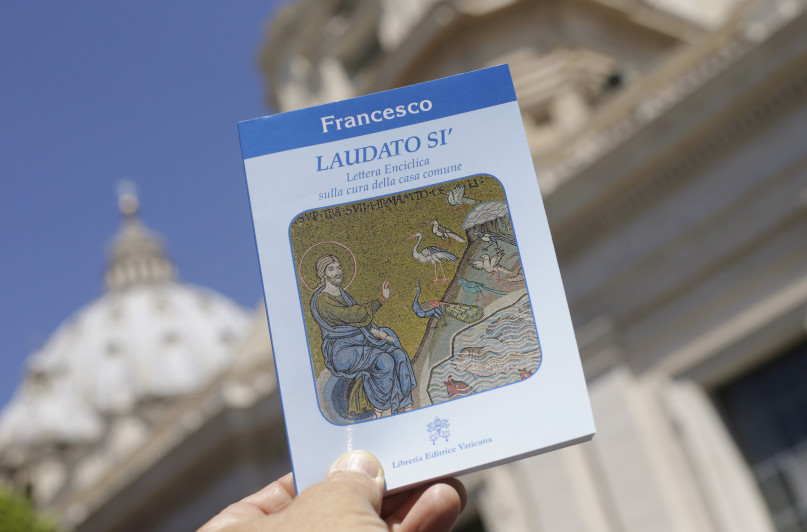As faithful visitors to this space will know, I spent some time last year helping put together a coalition of religious leaders and climate scientists in Massachusetts to advance the cause of combatting global warming in the Bay State. Along with promoting public policies on Beacon Hill, the idea was to use the combined moral and intellectual force of religion and science to focus public attention on an issue that didn’t elicit a single question in the presidential debates of 2016.
A year later, it’s fair to say, public attention is focused. Thanks to alarming reports from the United Nations and our own federal government, and to the election of a slew of climate-concerned Democrats in the 2018 midterms, climate change as a clear and present danger has become daily fare throughout the honest media.
So preaching the imminent end of civilization as we know it is no longer Job One. What’s on the table is demonstrating the extent of the crisis and determining how best to address it.
Top of the charts these days is the Green New Deal resolution proposed by congressional superstar Alexandria Ocasio-Cortez (D-NY) and Massachusetts Sen. Edward Markey. This has received a good deal of heat, and not only from the right, principally for throwing into its climate agenda a kitchen sink of basically unrelated progressive programs—medical care, employment guarantees, anti-discrimination protections.
Less well recognized, however, is that on the climate front itself the resolution is a highly political document which, as political documents do, pulls some critical punches. In deference to organized labor, it is soft on putting an end to fossil fuel infrastructure. In deference to environmentalists, it gives the back of its hand to nuclear power and refuses to acknowledge a role for carbon recapture. In deference to eco-justice advocates, it has only the tiniest good word for carbon pricing.
All the above issues are tough and will have to be fought through. But the biggest political punch-pulling has to do with the GND’s deference to the American belief that it’s possible to have it all. It paints the future as rosy with great new green jobs. It promises an era of growth and prosperity, just as the original New Deal (aided and abetted by World War II) ushered in the postwar boom.
As if we could save the planet without sacrificing a thing.
We can’t. Any serious look at averting catastrophe recognizes that the kind of lifestyle Americans now embrace, or aspire to, is unsustainable. And here is where religious leaders are well positioned to make their voices heard.
Not, of course, those leaders who preach the Prosperity Gospel. They are part of the problem—or the problem itself.
But Christianity, like other religious traditions, has rich resources to combat it. As Jesus told the man who asked what good thing he should do to merit eternal life, “If you want to be perfect, go, sell your possessions and give to the poor, and you will have treasure in heaven. Then come, follow me.”
The contemporary model for this kind of preaching is Pope Francis, whose encyclical on climate change, Laudato Si’, incorporates a vigorous critique of what he calls “compulsive consumerism.” Here are a few of the choicer quotes.
“Many people know that our current progress and the mere amassing of things and pleasures are not enough to give meaning and joy to the human heart, yet they feel unable to give up what the market sets before them.”
“If we acknowledge the value and the fragility of nature and, at the same time, our God-given abilities, we can finally leave behind the modern myth of unlimited material progress. A fragile world, entrusted by God to human care, challenges us to devise intelligent ways of directing, developing and limiting our power.”
“Human beings and material objects no longer extend a friendly hand to one another; the relationship has become confrontational. This has made it easy to accept the idea of infinite or unlimited growth, which proves so attractive to economists, financiers and experts in technology. It is based on the lie that there is an infinite supply of the earth’s goods, and this leads to the planet being squeezed dry beyond every limit.”
“When people become self-centered and self-enclosed, their greed increases. The emptier a person’s heart is, the more he or she needs things to buy, own and consume. It becomes almost impossible to accept the limits imposed by reality.”
Politicians are never good at preaching limits, and these days the idea of sacrificing for the common good is very much out of fashion. Our liberal divines are good at preaching eco-justice, but not so good at talking to their flocks about limits and sacrifices themselves.
That may not win them applause, but the prophecy gig was never supposed to be easy. And if not them, then who?






